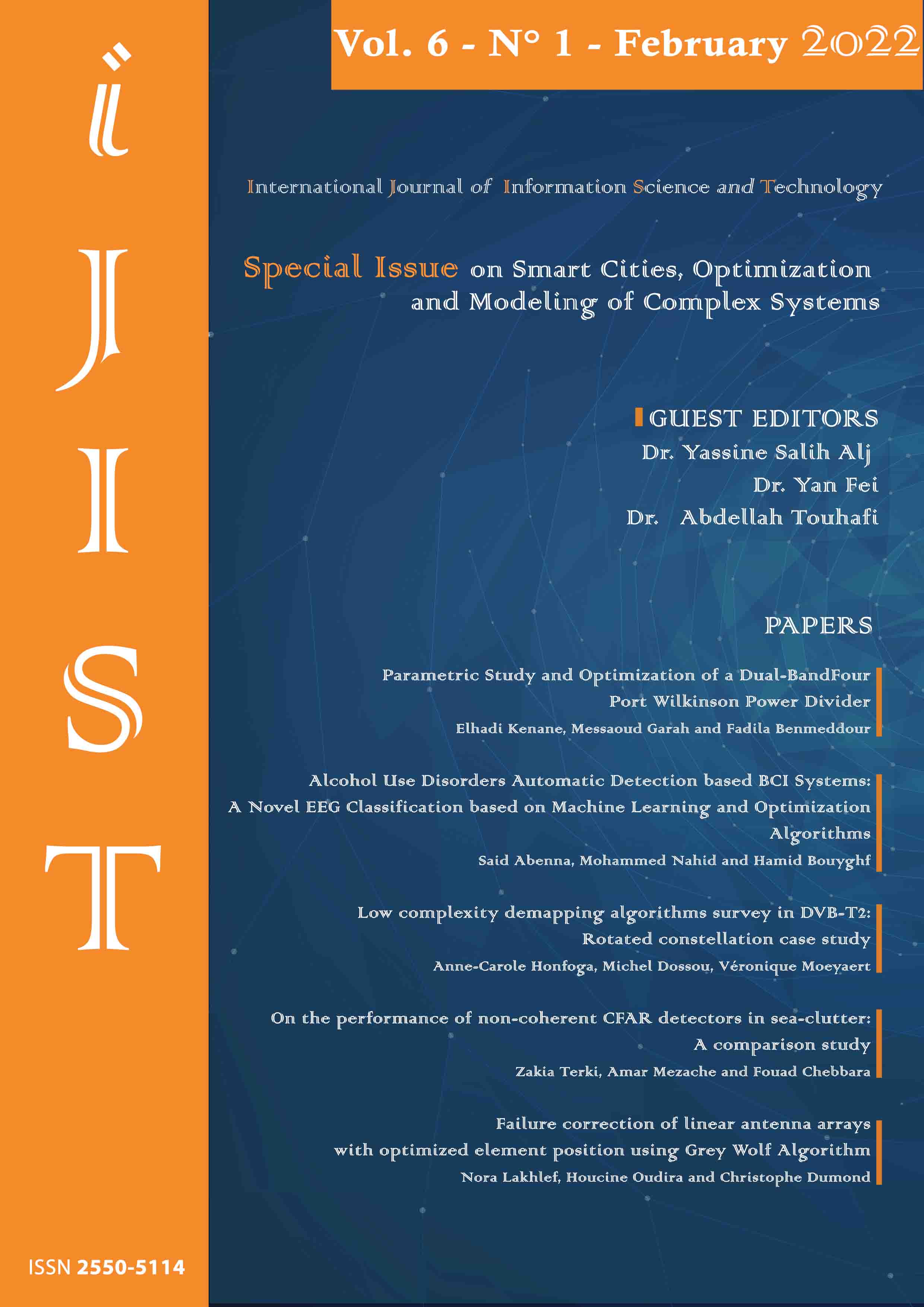On the performance of non-coherent CFAR detectors in sea-clutter: A comparison study
Abstract
In radar systems, detection performance depends on assumed target and clutter statistical distributions. The probability of detection is shown to be sensitive to the degree of estimation accuracy of clutter levels. In this work, the performances of non-coherent logt-CFAR, zlog(z)-CFAR and Bayesian-CFAR detectors are investigated using both simulated and real data. Three clutter disturbances are considered named log-normal, Weibull and Pareto type II. Based on simulated data, existing CFAR algorithms provide fully CFAR decision rules. From IPIX real data, the dependence of the false alarm probability associated to each detector is studied. With different range resolutions, it is shown that the Bayesian-CFAR algorithm exhibits a small deviation of the false alarm probability.The submitting author warrants that the submission is original and that she/he is the author of the submission together with the named co-authors; to the extend the submission incorporates text passages, figures, data or other material from the work of others, the submitting author has obtained any necessary permission.
Articles in this journal are published under the Creative Commons Attribution Licence (CC-BY). This is to get more legal certainty about what readers can do with published articles, and thus a wider dissemination and archiving, which in turn makes publishing with this journal more valuable for you, the authors.
In order for iJIST to publish and disseminate research articles, we need publishing rights. This is determined by a publishing agreement between the author and iJIST.
By submitting an article the author grants to this journal the non-exclusive right to publish it. The author retains the copyright and the publishing rights for his article without any restrictions.
Privacy Statement
The names and email addresses entered in this journal site will be used exclusively for the stated purposes of this journal and will not be made available for any other purpose or to any other party.







